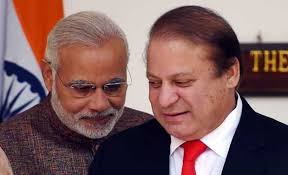The recent terrorist attacks in India has perhaps clarified one basic fact that whether talks with Pakistan proceed at a desired pace or not, it is unlikely to address the core issue of terrorism in India which is being continuously abetted by Pakistan. If we chart out even the immediate history in terms of Indo-Pak talks, one fact is amply clear and that is the painful similarity of the way the events pan out. First there will be a spate of terror strikes, India will go all over and suspend talks, suspend sporting and cultural events and want Pakistan to deal with the terrorists with an iron hand. Pakistan on its part does the necessary lip service, things remain cold for a while and once again India will take the initiative to revive talks. Just when diplomats would begin patting each other’s back, there will be yet another ghastly strike, killing many other innocent lives and yet again all these initiatives will be put into the back burner.
Yet again history repeated itself when India retaliated with a demand to Pakistan against the perpetrators of the recent Pathankot attacks and is linking diplomatic initiatives with that demand as foreign secretaries of both the countries are set to meet later this week. Though Pakistani Prime Minister Nawaz Sharif has reportedly constituted a joint investigation team to probe this attack, India’s response has been quite guarded. For the average citizen in the country it goes without saying that the flow of events seems to follow the set pattern year after years and government after government.
This fundamental factor underscores the moot point that the way the terrorism aspect is being dealt with and the initiatives that are being taken in terms of evolving and improving India-Pakistan relationship leaves a lot of place for improvement and perhaps a dynamic approach to tackle the matter is necessary.
Let us understand one basic fact that none of the top powers in the world are in a position to exert too much pressure on Pakistan. Be it US, China or Russia, Pakistan offers the precious gateway to them to tackle the Taliban-Afghan issue that almost constitutes as one of the world’s key geo-political problems. So while withdrawing talks could make India appear tough on the domestic front, it is unlikely to do much in terms of getting the global support.
Perhaps it is in this respect we must understand that it is as important to strengthen our strategic position as the diplomatic ties. The Pathankot attacks have highlighted one of our biggest loophole in the defence set-up, the weakness in strategic placement coupled with slow response to intelligence. Therefore before another round of talks, attacks and counter attack cycle begins, let’s huddle up and look at formulating a long-term strategy for strengthening our borders.






Leave a reply